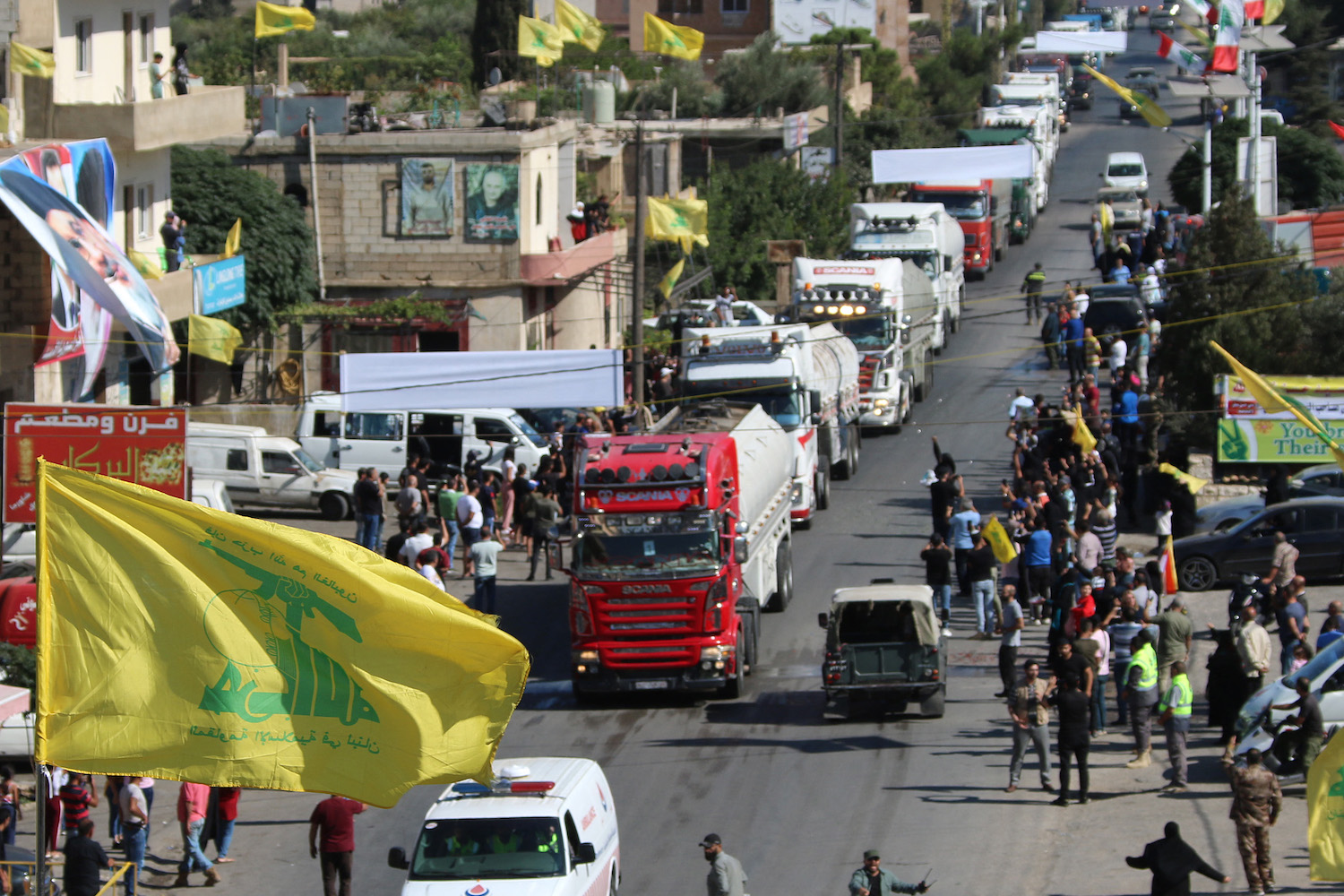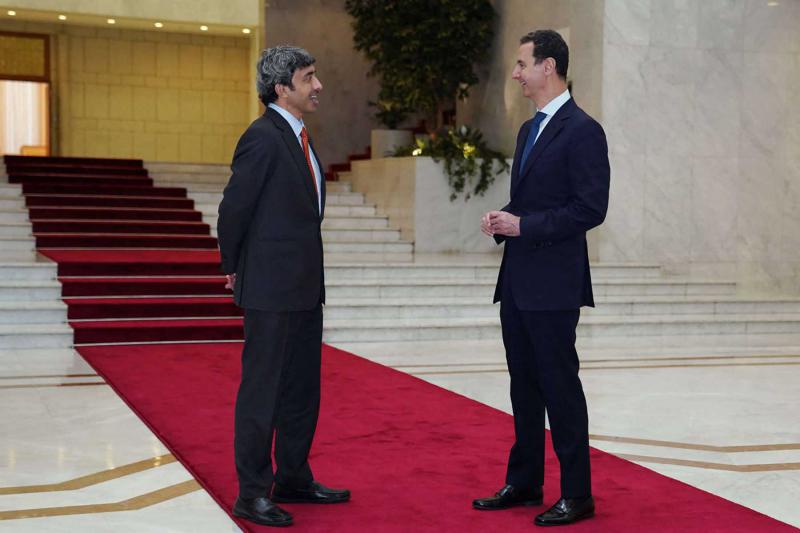Doha: A plane from the Amiri Air Force of the Qatari Armed Forces loaded with 70 tons of food, representing a new …

by reuters -- Powerful Lebanese groups Hezbollah and Amal have said they would end a boycott of cabinet sessions, opening the way for ministers to meet after a three-month gap that has seen the economy and currency collapse further. The groups, which back several ministers in a government made up of members from across the political spectrum, said in a statement on Saturday that the decision was driven by a desire to approve the 2022 budget and to discuss an economic recovery. The Lebanese cabinet under Prime Minister Najib Mikati has not met since October 12 due to squabbling about the investigation into the deadly Beirut port explosion in August 2020, and a continuing diplomatic rift with Saudi Arabia and some Gulf states. As a result, the government has been unable to take swift action to address the country’s dire economic crisis.
Since August 2019, the Lebanese pound has lost more than 90 percent of its value as more than three-quarters of the population has slipped into poverty. The country’s inflation rate has exceeded those of crisis-hit Venezuela and Zimbabwe. The World Bank has said the Lebanese financial crisis is one of the worst since the mid-19th century. In December, President Michel Aoun said Lebanon needs “six to seven years” to emerge from the crisis. The economic meltdown began in 2019 when the financial system collapsed under the weight of huge state debt and lack of foreign currency – the result of decades of corruption, economic mismanagement, and unsustainable financing.
تعليق المشاركة في جلسات مجلس الوزراء، حق ديمقراطي مقاطعة جلسات انتخاب رئيس الجمهورية لمدة سنتين ونصف ، ايضاً حق ديمقراطي تعطيل نصاب …

Syria’s President Bashar al-Assad (R) talks to UAE Foreign Minister Sheikh Abdullah bin Zayed Al-Nahyan in the capital Damascus, November 9, 2021. (AFP)
by thearabweekly.com -- Israel sees benefits in terms of curtailing Iranian influence in Syria arising from the Gulf states' progress towards normalisation with the Damascus regime, said an Israeli media report quoting "a senior diplomatic official" in the Jewish state. The unnamed source, cited by Israeli news website Ynet, said that closer ties to Arab Sunni states might indicate a willingness on the part of the Syrian regime to curb relations with Iran and Shia allies. “During the coming year there will be opportunities to reduce the Iranian presence in Syria,” predicted the Israeli official. The Israeli source highlighted the importance of the economic factor as the rapprochement between Damascus and Gulf countries could help Syria deal with its financial crunch and shore up the stability of the regime. Syria faces a tough economic crisis due to war-related expenditures and US and European restrictions.
The Israeli official described Iran’s nuclear programme as “a great threat to Israel, even an existential threat" and the development of an atomic weapon by Iran would “exacerbate the terror activities of its proxies in the area.” The source did not rule out an Israeli strike on Iran's nuclear facilities if the ongoing talks in Vienna do not manage to limit the threat of Israel building a nuclear bomb. But the Israeli official noted that in case of a military attack on Iran, Lebanon's pro-Iran party Hezbollah and the Palestinian militant faction Hamas might enter the fray in support of Tehran. Hezbollah “has very significant attack capabilities that pose a challenge to us,” the Israeli source added. “We are conducting defensive preparations in the northern arena.” Israeli Prime Minister Naftali Bennett was quoted as telling the Knesset’s Foreign Affairs and Defence Committee, Monday, that Israel was conducting "a multifaceted war" against Iran and its regional proxies, especially Hezbollah and Hamas. He expressed the view that financial constraints and pressures at home limit Iran's ability to carry out its regional designs. Since last July, a number of Arab countries has increasingly made moves to normalise relations with the Assad regime, through meetings, agreements and economic understandings. The moves involved Jordan, Egypt and the UAE, in particular.
Khazen History


Historical Feature:
Churches and Monasteries of the Khazen family

St. Anthony of Padua Church in Ballouneh
Mar Abda Church in Bakaatit Kanaan
Saint Michael Church in Bkaatouta
Saint Therese Church in Qolayaat
Saint Simeon Stylites (مار سمعان العامودي) Church In Ajaltoun
Virgin Mary Church (سيدة المعونات) in Sheilé
Assumption of Mary Church in Ballouneh
1 - The sword of the Maronite Prince
2 - LES KHAZEN CONSULS DE FRANCE
3 - LES MARONITES & LES KHAZEN
4 - LES MAAN & LES KHAZEN
5 - ORIGINE DE LA FAMILLE
Population Movements to Keserwan - The Khazens and The Maans
ما جاء عن الثورة في المقاطعة الكسروانية
ثورة أهالي كسروان على المشايخ الخوازنة وأسبابها
Origins of the "Prince of Maronite" Title
Growing diversity: the Khazin sheiks and the clergy in the first decades of the 18th century
Historical Members:
Barbar Beik El Khazen [English]
Patriach Toubia Kaiss El Khazen(Biography & Life Part1 Part2) (Arabic)
Patriach Youssef Dargham El Khazen (Cont'd)
Cheikh Bishara Jafal El Khazen
Patriarch Youssef Raji El Khazen
The Martyrs Cheikh Philippe & Cheikh Farid El Khazen
Cheikh Nawfal El Khazen (Consul De France)
Cheikh Hossun El Khazen (Consul De France)
Cheikh Abou-Nawfal El Khazen (Consul De France)
Cheikh Francis Abee Nader & his son Yousef
Cheikh Abou-Kanso El Khazen (Consul De France)
Cheikh Abou Nader El Khazen
Cheikh Chafic El Khazen
Cheikh Keserwan El Khazen
Cheikh Serhal El Khazen [English]
Cheikh Rafiq El Khazen [English]
Cheikh Hanna El Khazen
Cheikha Arzi El Khazen
Marie El Khazen